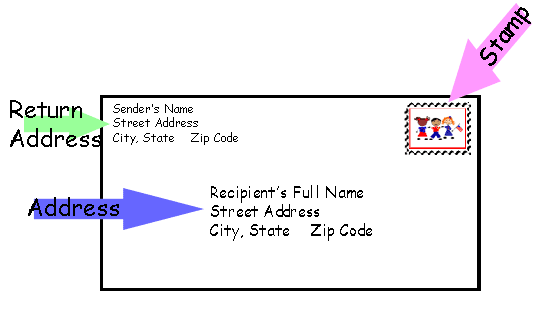Data Breach Reporting
Content
- What Is A Breach Under Eidas?
- How Much Does Data Protection Compliance Cost?
- How Is The Money From Fees Used?
- What To Do If The Organisation Does Not Respond Or You Are Dissatisfied With The Outcome
In our decision notice we may find against you or may decide you handled the request correctly. In some cases we may uphold your overall decision but make some findings about delays and other aspects of your request handling. This is an opportunity for you to learn and improve, and perhaps avoid future complaints. Our case officers will not pass this on to the requester and will not reveal the contents of the disputed information in any decision notice. Staff with higher levels of security clearance will be able to handle very sensitive information. If a requester makes a complaint to the ICO, one of our case officers will contact you and explain what we need from you. If you know a complaint has been made, you should make sure you keep all the relevant correspondence, as well as the requested information.
It’s a much better idea to be proactive and take steps to help stop people’s data from getting lost, damaged or stolen in the first place. If you need to pay, please visit ico.org.uk/fee and click ‘first time payment’, unless you have registered with us before. You must complete the online application before sending your payment. You can save time, hassle and money each year by setting up a direct debit, which deducts £5 from your fee. Members of the public and other companies will feel reassured to see your company’s name on this list because it means you value their information.

You can’t misuse people’s personal data, or leave it vulnerable to getting lost, damaged or stolen. This is because if personal data falls into the wrong hands, people could be harmed. Depending on the situation, they could become victims of identify theft, discrimination, or even physical harm. For example, losing your customer database could mean you’re unable to fulfil any orders.
What Is A Breach Under Eidas?
We may also share information with other regulators, such as the Financial Conduct Authority. Where an incident is relevant to another country, we may also share the information with appropriate regulatory representatives in that country. If you are unsure about any of the questions within the form, or if have any concerns about how to manage the breach please call us on . who we should contact if we need more information and who else you have told.
- However, we expect controllers to prioritise the investigation, give it adequate resources, and expedite it urgently.
- If you’re providing products or services of any type, it’s likely you’ll have and use information about people – known as personal data.
- in addition to the suite of toolkits, bite-sized guides and other tailored resources available on our data protection hub for small organisations.
- There are not many situations where you would be exempt from paying a fee, but you can check at ico.org.uk/fee-checker.
The ICO is warning companies to be aware of scams relating to payment of the data protection fee. If you have received a letter, text message, email or telephone call from us, you should always be directed to pay using our official website which is ico.org.uk. We need to make sure that the data protection fee is paid by all those who need to pay it.
How Much Does Data Protection Compliance Cost?
It only includes paper records if you plan to put them on a computer or file them in an organised way. If you are a public authority, all paper records are technically included – but you will be exempt from most of the usual data protection rules for unfiled papers and notes. It doesn’t need to be ‘private’ information – even information which is public knowledge or is about someone’s professional life can be personal data. Good practice in data protection is vital to ensure public trust in, engagement with and support for innovative uses of data in both the public and private sectors. Data protection is the fair and proper use of information about people. It’s part of the fundamental right to privacy – but on a more practical level, it’s really about building trust between people and organisations. We offer advice and guidance, promote good practice, carry out audits, consider complaints, monitor compliance and take enforcement action where appropriate.
When considering publishing DPIAs, public authorities should think about their wider transparency obligations, such as complying with the Freedom of Information Act. Before UK GDPR, many public authorities included privacy impact assessments in their definition documents for publication schemes. If you have decided to accept a high risk, either because it is not possible to mitigate or because the costs of mitigation are too high, you must consult the ICO before you go ahead with the processing.
You need to create a document which explains your decision to use CCTV instead of any other options you’ve considered and which sets out an assessment of how it will impact people’s privacy. This is an important document to have in writing and it’s known as a data protection impact assessment . All organisations – large and small – should create their own DPIA before installing CCTV. We offer advice and guidance, promote good practice, monitor breach reports, conduct audits and advisory visits, consider complaints, monitor compliance and take enforcement action where appropriate.
It must be more than remote, but any significant possibility of very serious harm may still be enough to qualify as a high risk. Equally, a high probability of widespread but more minor harm may still count as high risk. We also recommend you consider seeking legal advice or advice from other independent experts such as IT experts, sociologists or ethicists where appropriate. If you use a data processor, you may need to ask them for information and assistance.

Yes, if you have information about people for any business or other non-household purpose. The law applies to any ‘processing of personal data’, and will catch most businesses and organisations, whatever their size. Our main aim is to provide advice to help the organisations avoid similar incidents in the future. Personal data in political campaigning This guidance highlights the importance of processing personal data in compliance with data protection law during political campaigning. Find the right resource A handy library of resources you’ll find on the data protection advice hub for small organisations. Every organisation or sole trader who processes personal information needs to pay a data protection fee to the ICO, unless they are exempt. You can use our eIDAS breach notification form or the GDPR breach-reporting process.
How Is The Money From Fees Used?
Like the Commissioner, the Tribunal can only consider questions relevant to the Act, not any wider dispute that may arise from the request. A public authority, the requester or both can appeal against the Information Commissioner’s decision notice. In rare circumstances when a public authority persistently refuses to co-operate with us, we can issue an information notice. This is a legally binding notice, requiring an authority to give us the information or reasons we have asked for. We do this in about a third of valid freedom of information complaints. The decision notice will state whether you have complied with the law, and, if not, what you should do to put things right.
You can do this online and it only takes 15 minutes to complete the process. Where a significant cyber incident occurs, you may also need to report this to the National Cyber Security Centre . To help you decide, you should read the NCSC ‘s guidance about their role and the type of incidents that you should consider reporting. Where appropriate, we may share it with law and cybercrime agencies or other regulators.
If you’re not able to report by phone, such as in the evenings and on weekends, you can also report online. An advisor who specialises in personal data breach reporting will be able to give you practical, direct advice on your situation. If you’re unsure if your breach is reportable you can also use our self-assessment tool to help you decide or you can call our personal data breach advice line. By law, you’ve got to report a personal data breach to the ICO without undue delay and within 72 hours.

If a risk is likely, you must notify the ICO; if a risk is unlikely, you don’t have to report it. However, if you decide you don’t need to report the breach, you need to be able to justify this decision, so you should document it. The UK GDPR introduces a duty on all organisations to report certain personal data breaches to the relevant supervisory authority. You must do this within 72 hours of becoming aware of the breach, where feasible. At its core, data protection law encourages those responsible to assess and respond to the risks as they see them. Every organisation is different, so there’s no one-size-fits-all answer that the ICO can give.
Will The Ico Notify Anyone Else?
Even two sole traders in the same industry will run their businesses in different ways. If you use personal data for work, for example if you’re using CCTV to protect your premises, then you’ll need to pay a data protection fee to the ICO – although there are exemptions. For large organisations (those with more than 250 staff or an annual turnover exceeding £36 million) the fee is £2,900. The register includes some basic information about the organisation, including trading names and registered address. It also contains information about which tier of the data protection fee the business falls into, and contact details of their data protection officer, if they have one. Paying your data protection fee on time and being listed on the ICO’s register of fee payers shows that your company takes data protection seriously.
However, in line with Government advice, our offices are closed and our staff are working from home. The European Data Protection Board, which has replaced the WP29, has endorsed the WP29 Guidelines on Personal Data Breach Notification. You should also be aware of any recommendations issued under relevant codes of conduct or sector-specific requirements that your organisation may be subject to.
A personal data breach can be broadly defined as a security incident that has affected the confidentiality, integrity or availability of personal data. We’ve got lots of tools and resources on our website including checklists, toolkits and simple guides that have been tailored to the needs of SMEs, small organisations, small businesses, and sole traders.
The fee is payable by a range of companies from sole traders and SMEs through to large organisations, depending on your practices. Where appropriate, the ICO may liaise with the above organisations in relation to the incidents reported to us. However, it is your responsibility to ensure all relevant authorities are made aware of an incident.
We have published the standardised sample copy that our case officers use when writing to public authorities, including introductory information about the exemptions and key questions we may need to ask. The questions are not exhaustive and case officers tailor their correspondence in each case. There are no financial or custodial penalties for failure to provide information on request or for failure to publish information. But you could be found in contempt of court for failing to comply with a decision notice, enforcement notice, or information notice.
The law applies from when personal data is collected, and covers companies of all sizes from sole traders and people who work for themselves through to large global corporations. There are some private companies who offer to complete the data protection fee payment on behalf of your organisation, often charging more than the standard cost. Be aware that these agencies have no official standing or powers under data protection law, and there is no connection between them and the ICO – we recommend you pay us directly. The cost of the data protection fee depends on a company’s size and turnover.
If you experience a personal data breach you need to consider whether this poses a risk to people. You need to consider the likelihood and severity of the risk to people’s rights and freedoms, following the breach. When you’ve made this assessment, if it’s likely there will be a risk then you must notify the ICO; if it’s unlikely then you don’t have to report. The DPA 2018 includes a way of allowing media organisations to prevent legal proceedings taking place (known as a “stay” on the proceedings). As with the special purposes exemption, this protects freedom of expression by preventing data protection law being used to block publication.
What To Do If The Organisation Does Not Respond Or You Are Dissatisfied With The Outcome
a description of the measures taken or proposed to deal with the personal data breach and, where appropriate, a description of the measures taken to mitigate any possible adverse effects. If you decide not to notify individuals, you will still need to notify the ICO unless you can demonstrate that the breach is unlikely to result in a risk to rights and freedoms. You should also remember that the ICO has the power to compel you to inform affected individuals if we consider there is a high risk. In any event, you should document your decision-making process in line with the requirements of the accountability principle. If a breach is likely to result in a high risk to the rights and freedoms of individuals, the UK GDPR says you must inform those concerned directly and without undue delay. A personal data breach means a breach of security leading to the accidental or unlawful destruction, loss, alteration, unauthorised disclosure of, or access to, personal data.
If there is anything you would like to discuss, please contact me on the following number . You can find guidance on your obligations under information rights legislation on the ICO’s website () as well as information on their regulatory powers and the action they can take. If, when I receive your response, I would still like to report my concern to the ICO, I will give them a copy of it to consider. I understand that before reporting my concern to the Information Commissioner’s Office I should give you the chance to deal with it. If you have already received a response, but are unhappy for any reason, you should first make a complaint to the organisation. If you have received unwanted electronic marketing via telephone, email or text, find out who to contact.



